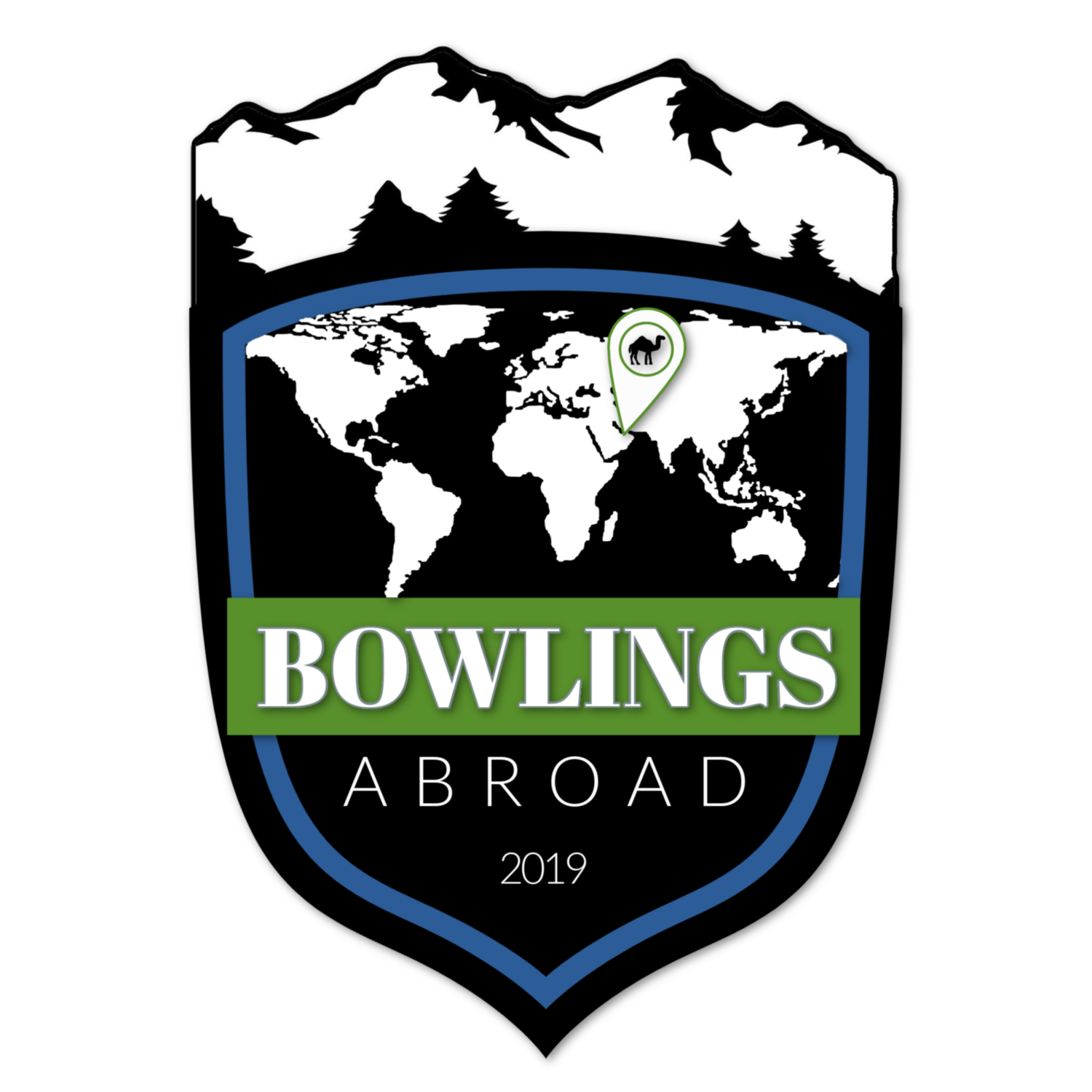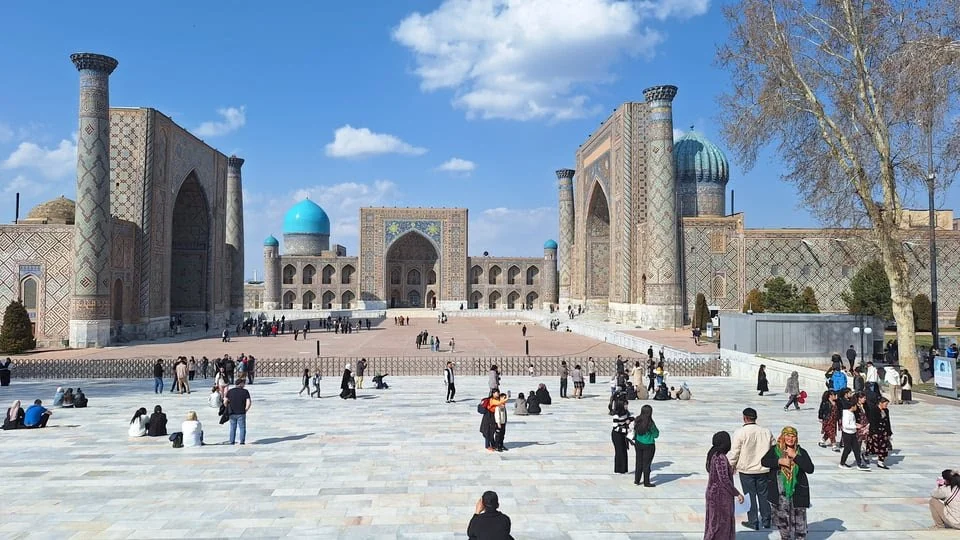Traveling Through History In Uzbekistan
Originally posted in Nate’s weekly newsletter Takes and Typos on March 17, 2024
The Republic of Uzbekistan was born in August 1991. It was one of the 15 states that emerged from the fall of the USSR. Uzbekistan is landlocked, jammed among its Central Asian neighbors: Kazakhstan to the north and west, Hermit-ish Turkmenistan and Afghanistan to the South, and Kyrgyzstan and Tajikistan to the East. In recent decades the country has leveraged its natural gas and mineral wealth to modernize its infrastructure and cities.
Manti, Uzbek style dumplings
Like the rest of its Central Asian cohort, the country is geographically and politically situated between Russia and China and resides in the spheres of each state. We noted this repeatedly in our travels. When we took the train from Tashkent to Samarkand, we rode along rails laid during the Soviet era but on a high-speed train car, manufactured in China. The metros in Tashkent are built in the ornate Soviet style that Tucker Carlson recently gushed over in Moscow. One of the two national dishes is manti, a dumpling dish that arrived in the country from China along the Silk Road.
Upon arriving in Tashkent we found the capital busy, clean, and notably quiet. I’d say 60% of the women wear hijab but more in Samarkand than Tashkent. Uzbeks are very reserved people. They don’t smile much; they don’t chatter much in public. They greet each other quietly with a handshake and a meeting of the forehead. I joked to a friend this week that "full metro cars and weekend markets in Tashkent were quieter than three Jordanian dudes having lunch."
The Gūr-i Amīr mausoleum of the Turco, a Turkic Conqueror
Like Azerbaijan, which we’ve previously visited, the leader of Uzbekistan during the Soviet era, Islam Karimov, became the president after independence and ruled until his death in 2016. The country began to open itself to tourists in 2018. We saw other travelers in both Tashkent and Samarkand, but most of them appear to be Russian or Kazakh.
The historical sites in Uzbekistan are incredible. We toured mosques and madrasahs that date back to the 1400s and visited ruins the result of the Mongol conquest in the 1200s.
From what we could tell, Uzbeks don't really have a cafe or bar scene. This makes sense given the cold climate and conservative culture. On a few occasions, we walked towards busy-looking streets expecting to find restaurants or cafes and came up empty-handed. But the food we had was wonderful. Uzbek food is hearty, which again makes sense given the winters. The other national dish, plov, is a rice dish with stewed meat and vegetables—a Central Asian paella or biryani. It is also notable that people in Uzbekistan are decidedly tea, rather than coffee people. This was great for me because I don't particularly like coffee. I typically only drink the occasional espresso when I'm traveling. But I love tea and drank it at every opportunity possible.
Plov, an absolute banger of a rice dish
In preparing for our trip, I came across several videos calling Uzbekistan the “cheapest country in the world.” I thought these were tacky and felt a touch exploitative. That said, if you are budget-sensitive, traveling to Uzbekistan is affordable. The US dollar trades at 1:12,500 Uzbeks Soms. Most of the meals we had were in the neighborhood of 150,000 soms, so under $12 for two. The best meal we had, manti, plov, and tea service, at an understated cafe in Samarkand, was eight bones.
Tashkent very much has a Soviet feel. On a couple of occasions, we found ourselves taking multi-block detours to get around government ministry compounds. There are police everywhere. In our prior travels in post-Soviet states, we have found a vibrant nightlife and restaurant scene around Freedom or Independence Square. Not so much this trip. In Tashkent, Independence Square is in the middle of a quiet park.
Independence Square in Tashkent
In closing, let's talk about traveling while Black for a moment. Racism is real and not everywhere is safe for everyone to travel. I am not saying I am the first Black person to ever go to Uzbekistan but I didn't see any other brothers and sisters, and many of the people I encountered acted like I was the first Black person they'd ever seen in real life.
In a phenomenon I have not experienced since going to Beijing, in 2014, I was repeatedly asked by people to pose for photos. I obliged the first few. Hope overheard someone practicing saying “Welcome to Uzbekistan” in English before approaching us. As we walked through the Registan, I heard a couple of people yell “Hey, New York!” and wave.
That said, The people were very chill. I felt no hostility toward me. If you are a Black traveler you shouldn't have unusual safety concerns in Uzbekistan.
On the whole, this was a great little adventure. The people of Uzbekistan are welcoming. The food is solid to great. The history is unavoidable and compelling–it’s literally in your face everywhere you go. When I was a kid in geography class, Pyongyang, Tashkent, and Harare were the most exotic sounding places on Earth to me. It’s really cool that I got to visit one of them.






